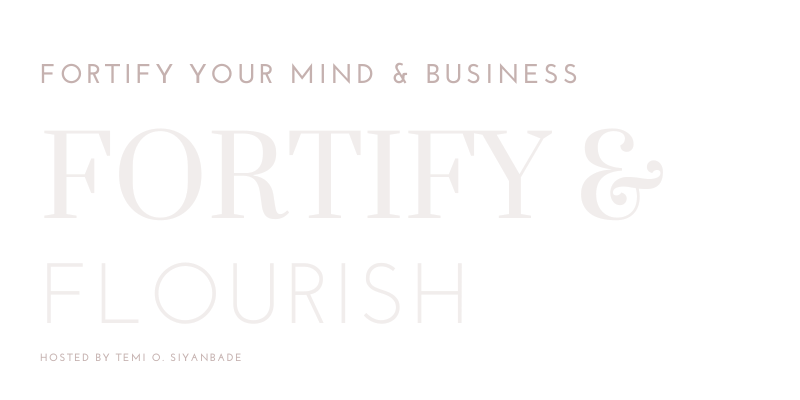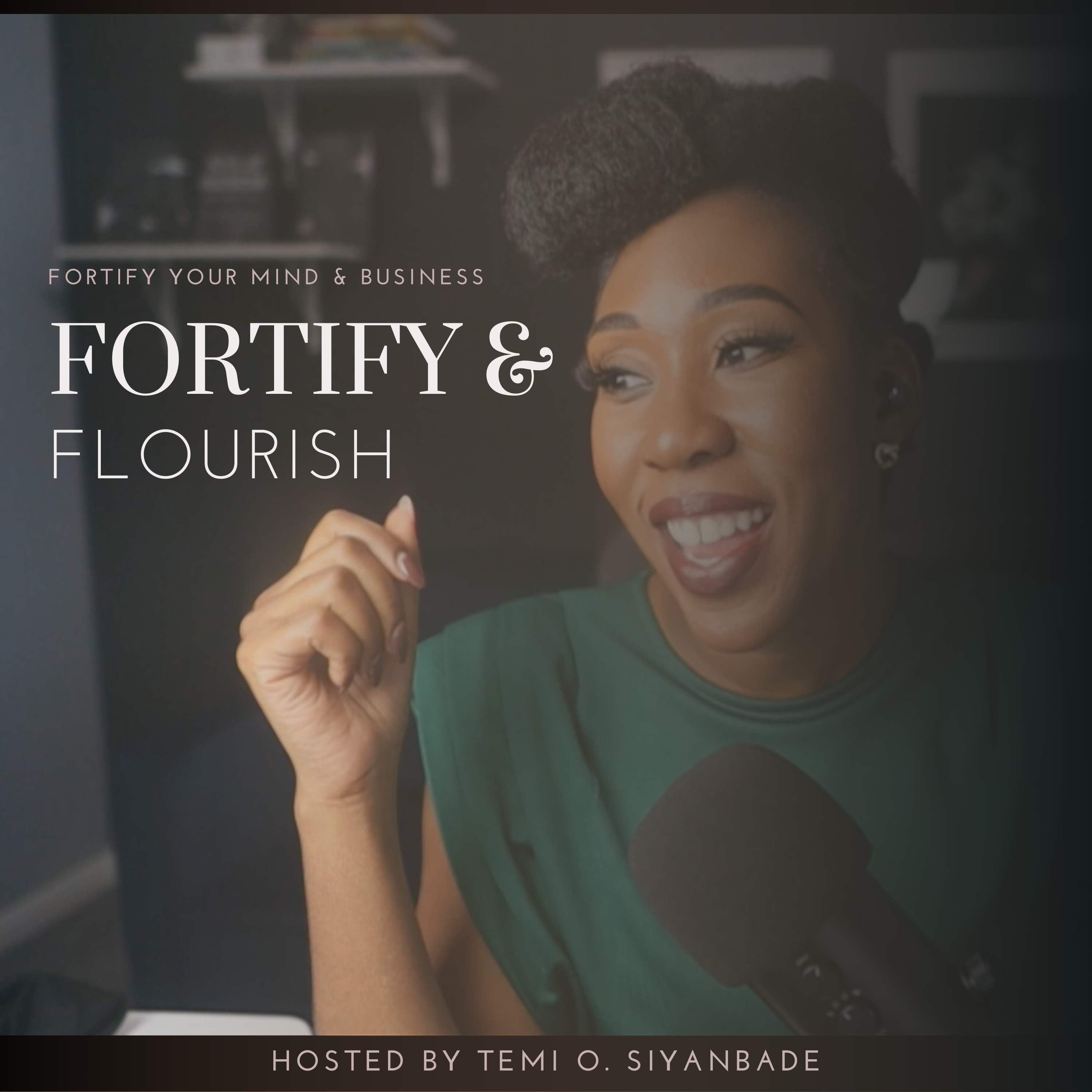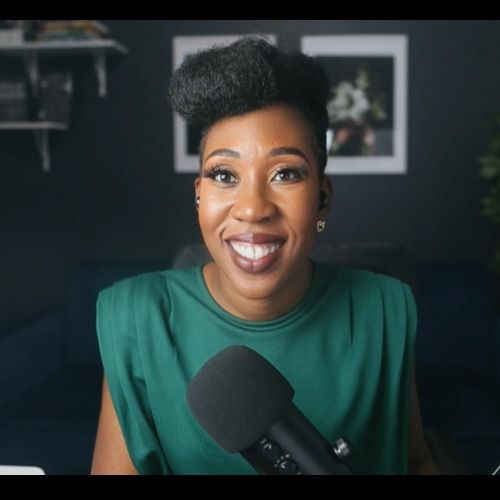How to Avoid Getting Sued in 2024
AI is not going anywhere, so we have to discuss how to use it in business safely. In part two of our December 2024 series of the Leader's Lawyer, we are all about navigating the law and artificial intelligence.
Transcript
Hello, Hello, Hello again. It's Temi
Speaker:here, Houston based attorney and host of
Speaker:Ask Temi Live, where we discuss the best
Speaker:ways to establish your business, protect
Speaker:your name, and keep your profits. This is
Speaker:our very important video #2 in our
Speaker:series all about how to make sure 2024
Speaker:is a year where you are legally protected
Speaker:and enjoy Peace of Mind, right.
Speaker:So essentially, I'm trying to help you
Speaker:guys avoid getting sued, getting in
Speaker:trouble, and help you think about how you
Speaker:can scale. Today's video, right, is all
Speaker:about how to not get sued. Video #1 The
Speaker:first video was all about making sure we
Speaker:don't get in trouble with the government,
Speaker:but now how can we avoid getting
Speaker:sued for messing up with people's things?
Speaker:Where I wanted to start this conversation
Speaker:with really is how to
Speaker:protect your brand, how to make sure
Speaker:you're not getting sued in the age of
Speaker:AIAI is the big thing and
Speaker:there are huge legal implications for
Speaker:this. Now really this is a 2 sided thing
Speaker:because it's not just about not getting
Speaker:sued, it's also about being vigilant with
Speaker:regards to what people are doing around
Speaker:you. AI has changed things.
Speaker:And so you really want to be clear about
Speaker:certain things. So in the first video, we
Speaker:were talking all about transparency.
Speaker:Well, in this video it's all about
Speaker:clarity. And it's really clarity with
Speaker:regards to ownership and clarity again
Speaker:with how you do things in the age of
Speaker:AI, in the age of artificial intelligence
Speaker:where we have ChatGPT and we have people
Speaker:having the ability to take somebody's
Speaker:voice and ability to take somebody's
Speaker:features and do all these things. You
Speaker:need to really be in control of what's
Speaker:happening in your business, right?
Speaker:So with regards to you not getting sued,
Speaker:right, you want to be really careful with
Speaker:how you implement AI in your business.
Speaker:AI is an amazing tool. Listen, I'm not
Speaker:going to be here saying don't use chat
Speaker:TPT and don't do this and don't do that,
Speaker:but be wise with how you use it. Here are
Speaker:some examples of what I mean by using
Speaker:wisdom With this and being really clear,
Speaker:sometimes people are hiring folks who are
Speaker:helping them to do this or you're
Speaker:outsourcing. You're like, hey, I can help
Speaker:me save time. Well, I want you to
Speaker:understand that. I want you to understand
Speaker:the limitations of AI. I want you to
Speaker:understand that if AI is using something,
Speaker:you typically can't claim any type of
Speaker:ownership over it. What does that mean
Speaker:for you? That means that if you're using
Speaker:ChatGPT to create something that you're
Speaker:writing, you're not going to be able to
Speaker:do anything like get copyrights over that
Speaker:because you don't own it. And then the
Speaker:more I don't want to say
Speaker:scary place, but in another area to think
Speaker:about this is when you're using AI
Speaker:to modify. Or use
Speaker:something that someone else has created.
Speaker:You're really stepping into dangerous
Speaker:territory. And that's where I'm going to,
Speaker:you know, say, hey, you need to
Speaker:potentially pause the break on whatever
Speaker:it is that you're doing and and it's not
Speaker:even potentially, it's like actually
Speaker:stop, Don't use AI to
Speaker:modify something that someone else
Speaker:created and then put it out there in the
Speaker:world. Because when you're doing that,
Speaker:you're really most likely infringing
Speaker:on someone else's. Copyright.
Speaker:Right now, there's a lot of stuff in AI
Speaker:and technology. It's developing faster
Speaker:than the law can really keep up. But
Speaker:there are some fundamentals in the law
Speaker:that are going to, in my opinion, and
Speaker:what I've been seeing from the few cases
Speaker:that have already been tried are going to
Speaker:really go through whatever happens. And
Speaker:essentially it's this idea of what people
Speaker:have their rights to protect. People have
Speaker:their rights to protect what they create.
Speaker:If you have taken an idea and you've made
Speaker:it something tangible, you have rights
Speaker:invested in that right? And if you're
Speaker:using technology to create something, or
Speaker:you're using technology to to divert
Speaker:someone else's path and get into their
Speaker:stuff, you're no longer. Honoring that
Speaker:protection. That belongs to the person
Speaker:who has created something. So you want to
Speaker:make sure that you avoid that at all
Speaker:costs. One of the things people might be
Speaker:asking then is if I'm using AI because
Speaker:I'm saying hey, go ahead and use it, how
Speaker:do I use it safely? Well, the first thing
Speaker:I want to say is that if you have team
Speaker:members, I want you to be clear in
Speaker:dictating what they can and cannot
Speaker:use AI for. Like develop some policies
Speaker:that say if you are doing branding for
Speaker:me, if you are doing this, this is the
Speaker:parameter for which you can use AI. If
Speaker:this is something that we're going to
Speaker:publish, I don't want AI being used, or I
Speaker:need to review it or something like that,
Speaker:or you need to ask me permission. What is
Speaker:going to be your policy for the use of AI
Speaker:in your business, right? And that policy
Speaker:that you determine should really keep in
Speaker:mind that if AI is being used to alter
Speaker:something that someone else has created
Speaker:or something that belongs to someone
Speaker:else, like their likelihood, you know how
Speaker:the person looks, right? If you have
Speaker:pictures that you have created or
Speaker:pictures that you see online, and you,
Speaker:you have the bright idea of like changing
Speaker:that look so it looks like something else
Speaker:and you put it in there. You want to stop
Speaker:that? That's not a good look. If you do
Speaker:want to use something that belongs to
Speaker:someone else, there aren't new
Speaker:technologies that are allowing you to
Speaker:like take somebody's like this or take
Speaker:their voicing. And there's nothing wrong
Speaker:with that if. You have their permission.
Speaker:So what I'm seeing kind of being the
Speaker:developing trend, what I think is going
Speaker:to happen more and more often is people
Speaker:licensing the use of their person
Speaker:or licensing the use of what they've
Speaker:created to be used by AI.
Speaker:Even with ChatGPT, I've been hearing some
Speaker:things and seeing some things in the
Speaker:water where they are starting to partner
Speaker:with the people who are creating content
Speaker:to say we want to invest in making sure
Speaker:we protect you as well. What I see that
Speaker:looking like is is actually sourcing
Speaker:information from content creators that
Speaker:ChatGPT and tools like it will say, hey,
Speaker:we want you to use this information, put
Speaker:it in here so we can help people. But
Speaker:we're going to figure out ways to make
Speaker:sure you're always getting the
Speaker:attribution, that the rights and the
Speaker:recognition always comes back to you. So
Speaker:those are some of the big implications
Speaker:with regards to AI and how to
Speaker:avoid getting sued. And really think
Speaker:about how you can keep a good lookout as
Speaker:to what's going on with your technology.
Speaker:Another area where you're going to want
Speaker:to pay attention to really think about
Speaker:how you can be clear and what it looks
Speaker:like in terms of protection is, again,
Speaker:with your trademarks. So this is a oldie
Speaker:but a goodie, and there are a few things
Speaker:that I want you to keep in mind. If you
Speaker:are a DIY or and you in the past have
Speaker:gone to the United States Patent and
Speaker:Trademark Office, you've gone on their
Speaker:website to do your own search, it might
Speaker:be getting a little bit more difficult. I
Speaker:hate to tell you this, but they're making
Speaker:some changes and from the attorney's
Speaker:perspective, it's not something that's
Speaker:going to become easier. The interface
Speaker:looks nicer. I'm big on interface and you
Speaker:know how it looks on the screen. It's
Speaker:clear it doesn't look so old fashioned,
Speaker:but the update isn't necessarily helping
Speaker:you really find places where you might
Speaker:be accidentally. Taking somebody's name
Speaker:or taking something that has been
Speaker:trademarked, it's harder to do that. So
Speaker:what I'm seeing happening is really
Speaker:partnering with people who have the
Speaker:resources to access the AI. So AI is
Speaker:still being used in these spaces, but to
Speaker:help you with technology to get that
Speaker:information. So you're going to want to
Speaker:see that if you are still trying to do
Speaker:the DIY stuff that you're looking at the
Speaker:resources online to kind of help you
Speaker:navigate this new website and navigate
Speaker:how they've they've organized it so that
Speaker:you're not setting yourself up for
Speaker:failure. But it's also making sure that
Speaker:when you're working with folks who are
Speaker:professionals in the space, like an
Speaker:attorney like myself, right, that you're
Speaker:asking them what they can do in order to
Speaker:help you really be well-rounded in terms
Speaker:of that protection. And that goes even
Speaker:further. So not just looking at the
Speaker:United States Patent and Trademark
Speaker:Office, but really thinking about how do
Speaker:I navigate this space where people are
Speaker:popping up with businesses left, right
Speaker:and center? How do I keep up with it and
Speaker:keep an eye on my brand? See, nobody
Speaker:talks about how important it is to police
Speaker:your brand, right. And people sometimes
Speaker:get on the big guys when they say, Oh my
Speaker:gosh, I can't believe you sent a cease
Speaker:and desist letter to this person. Oh my
Speaker:goodness, that's so mean. You're not
Speaker:trying to help the little guy. Listen.
Speaker:Listen, you've invested in your brand
Speaker:that needs to be protected and if you
Speaker:want the government to help you protect
Speaker:and police it, you have to do some of
Speaker:that too. But there are resources that
Speaker:I'm going to also be making more
Speaker:available to my clients. You'll hear
Speaker:about that again in the next video. But
Speaker:there are going to be some great
Speaker:resources that we're going to put in
Speaker:place and that you can also put in place.
Speaker:With regards to just saying, hey, I want
Speaker:to make sure that I am keeping an eye as
Speaker:to where my, my business is being
Speaker:mentioned. Are there other applications
Speaker:that are being brought through the
Speaker:Trademark Office that I need to be aware
Speaker:of to kind of say, hey, this is really
Speaker:close to what I have and I'm going to
Speaker:speak up and say I don't want this to
Speaker:come through. Because there are
Speaker:opportunities to do that. So those are
Speaker:the big things that I want you to keep in
Speaker:mind with regards to avoiding getting
Speaker:sued and also thinking about brand
Speaker:protection as a whole. What I want you to
Speaker:take away from this is I want you to
Speaker:think about ways you can probably
Speaker:smartly outsource and
Speaker:leverage technology to avoid
Speaker:getting into trouble right and to do
Speaker:things with speed. Technology is going to
Speaker:help you protect your brand with speed if
Speaker:you allow it to. Right. And if you're
Speaker:smart with it, you can, you can make sure
Speaker:you're protecting yourself, right? But
Speaker:you're also leveraging it to to move
Speaker:quickly. So those are the big things that
Speaker:I want you to keep in mind. Again, your
Speaker:trademarks, making sure that you are
Speaker:clear and developing policies with your
Speaker:business, with the people you're working
Speaker:with and even for yourself as to how you
Speaker:will implement AI. Being very careful to
Speaker:say that I'm not going to use AI for
Speaker:anything that I want to have a right to
Speaker:protect. Because if I'm using AI for
Speaker:something I want to have the right to
Speaker:protect, I'm probably diluting. Right,
Speaker:weakening my right to that, if I'll have
Speaker:any right at all. OK,
Speaker:so that was a lot, but I'm trying to make
Speaker:sure I'm telling you this in bits and
Speaker:pieces. I'm going to give you a whole
Speaker:week to like think about this and listen,
Speaker:if you watch this video, you watched the
Speaker:video last week and you have questions,
Speaker:shoot them over to me. Let me know so I
Speaker:can make sure that we're on top of those
Speaker:questions for you and providing as much
Speaker:clarity as possible. Listen
Speaker:, 2024 is our year of scaling, our year
Speaker:of success and making sure that you have
Speaker:legal protection and peace of Mind. Until
Speaker:next time, have a great day. Bye.




